Pro-Kremlin outlets distort facts on Russian COVID-19 relief aid to Europe
After Russia shipped supplies to Europe,
Pro-Kremlin outlets distort facts on Russian COVID-19 relief aid to Europe
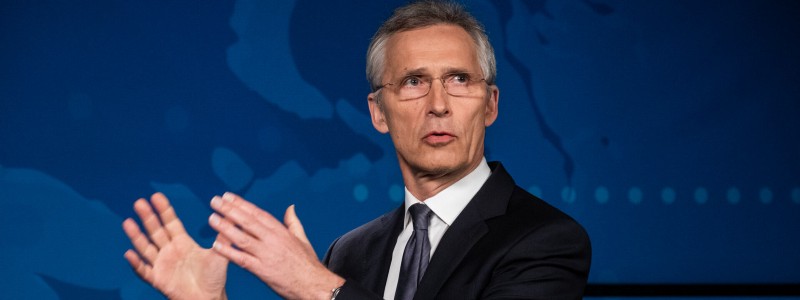
After Russia shipped supplies to Europe, pro-Kremlin outlets made false claims about the EU’s and NATO’s reaction
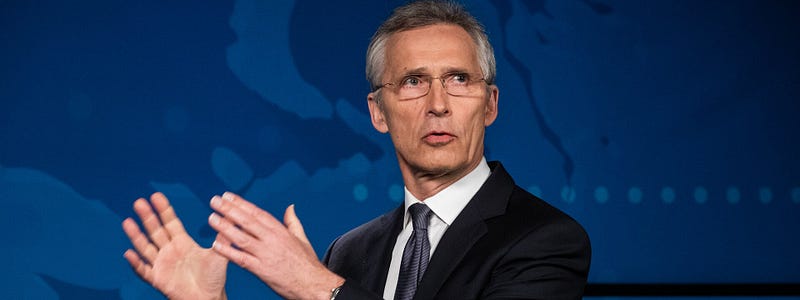
Following the Kremlin’s shipments of COVID-19 aid to European countries, pro-Kremlin outlets repeatedly and falsely alleged that senior NATO countries had forbidden the European Union and fellow NATO members from accepting Russian help.
The Kremlin’s initial shipment of aid to Italy and subsequent shipments throughout the West, including to the United States, have all the hallmarks of a publicity stunt. Pro-Kremlin media has portrayed Russia as a benevolent player on the world stage that is repeatedly willing to extend a helping hand to its adversaries in the midst of a global public health crisis. But while the Kremlin has been eager to cast its shipments of medical supplies as humanitarian aid, various sources — including previous analysis from the DFRLab — have reported that the “aid” comes with strings attached.
The stories circulated primarily in Russian and English in a variety of countries; the DFRLab identified three main narratives focused on Russia’s aid shipments to Europe.
Claim 1: The powerful “Big Brother” countries have forbidden E.U. and NATO members from accepting Russian help
One of the most prolific narratives claimed that a group of powerful NATO countries — dubbed the “Big Brothers” — have forbidden a number of less powerful European countries, including fellow NATO members, to request coronavirus aid from Russia.
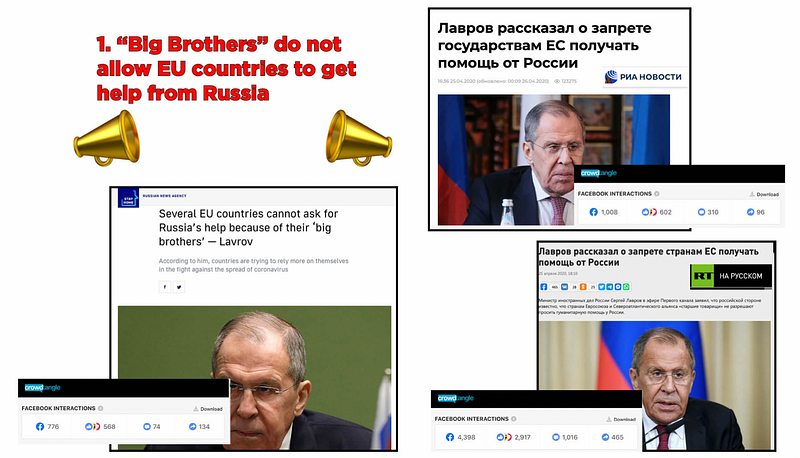
This claim was expressed by Russian Minister of Foreign Affairs Sergei Lavrov and was quickly reported on in numerous media articles and social media posts. While it predominantly circulated in Russian and English, it also appeared in pro-Kremlin media outlets from a variety of different countries, indicating that it had an intended audience beyond Russia. Which countries form the elite “Big Brothers” group was not mentioned, but it likely includes Russia’s main adversaries, such as the United States and United Kingdom.
Claim 2: Help from Russia and China buried the “European dream of Serbia”
Another prominent claim alleged that accepting help from Russia and China will deter Serbia’s ascension to the European Union.
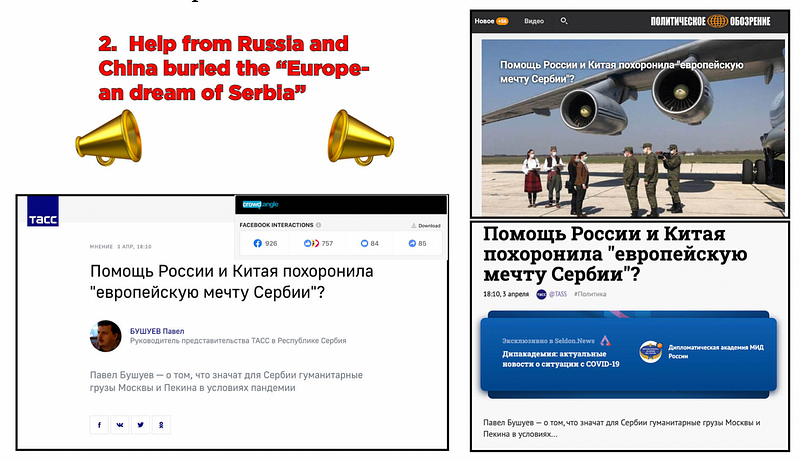
According to the story, the Serbian public is historically divided into pro-Western and pro-Russian citizens. Russia’s willingness to extend a helping hand, however, is supposedly turning more Serbians into “Russophiles.” As previously reported by the DFRLab, the story falsely claims that at the beginning of the pandemic, the Serbian government reached out to the E.U. for support but received no humanitarian aid. Instead, the story claims that Russia came to Serbia’s aid, demonstrating true allyship in a time of crisis.
Claim 3: Spain refused help from NATO
Lastly, a number of pro-Kremlin media outlets turned their attention to Spain, alleging that the Spanish government had refused NATO’s coronavirus aid.
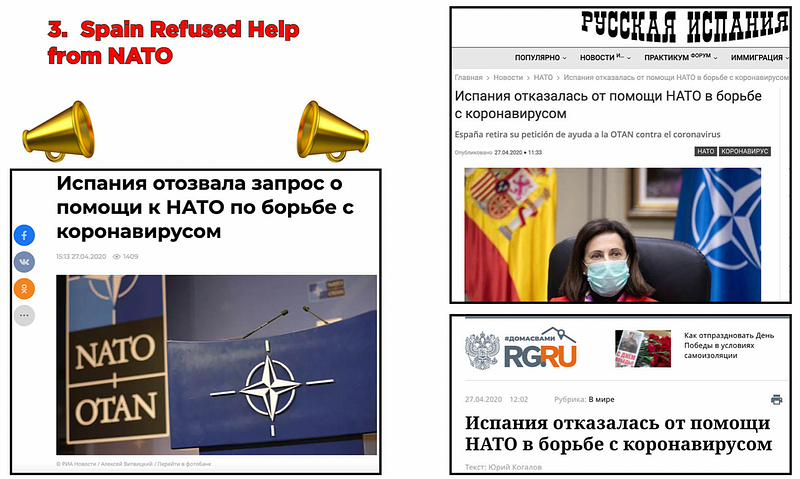
The story was based on verified reporting that Spain had withdrawn a request for coronavirus relief aid from NATO countries that the country had submitted in March. Pro-Kremlin media outlets framed the withdrawal in a misleading manner, creating the impression that Spain had explicitly refused aid offered by NATO. In fact, after receiving personal protective equipment (PPE), Lithuania, Estonia, Turkey, Poland, Czech Republic, Luxembourg, Germany, and Spain had all announced that the peak of the pandemic had passed and withdrew their requests for aid accordingly.
Lukas Andriukaitis is an Associate Director with the Digital Forensic Research Lab;
Follow along for more in-depth analysis from our #DigitalSherlocks.

